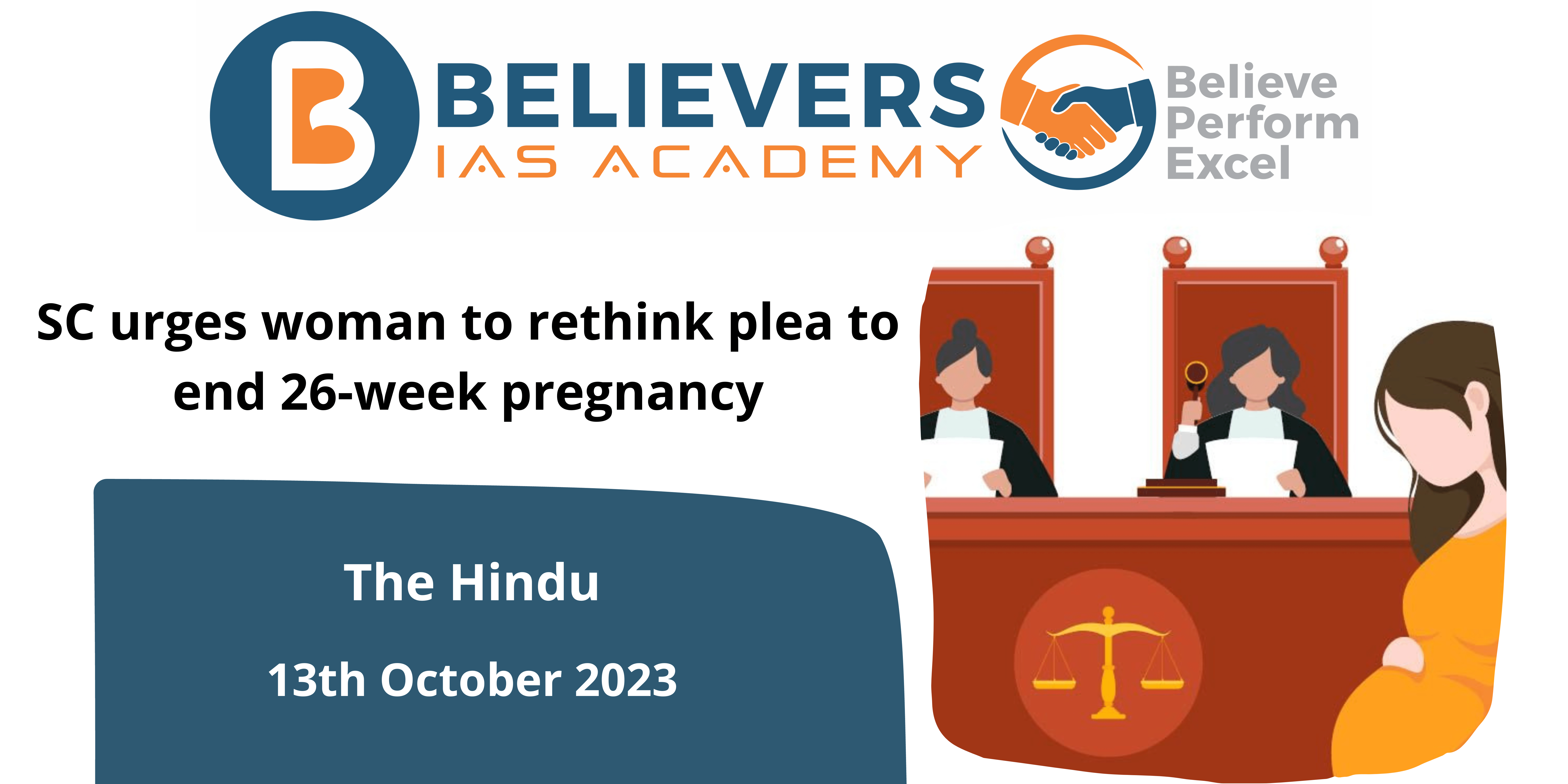SC urges woman to rethink plea to end 26-week pregnancy
Context
A married lady who had decided to end her third pregnancy—which had reached 26 weeks—was asked to rethink her decision by a three-judge bench led by Chief Justice of India D.Y. Chandrachud on Thursday.
-
- Judges and the Bench: Three judges The case was heard by a bench led by Chief Justice of India D.Y. Chandrachud.
- Rethinking Pregnancy Decision: A married woman’s decision to end her third pregnancy, which had gone past 26 weeks, was asked by the court to be rethought.
- Reproductive Autonomy vs. Rights of Unborn Children:
- Chief Justice Chandrachud stressed that the court could not disregard the rights of the unborn child while acknowledging the woman’s right to reproductive choice.
- The woman’s desire for a court order compelling doctors at AIIMS to undertake foeticide was questioned by the court.
- Balancing Rights:
- Citing Article 21, which deals with the right to life and personal liberty, Chief Justice Chandrachud emphasized the significance of striking a balance between a woman’s autonomy and the rights of the unborn child.
- The Status of the Woman:
- The mother stated her battles with depression and her incapacity to raise a third kid as justifications for her choice.
- Concerns of the Court:
- The court voiced fears that the child’s life would be in danger due to the quick intervention in the pregnancy.
- Additional Alternatives:
- Aishwarya Bhati, the Additional Solicitor-General, stated that attempts had been made to provide the woman with guidance, given her precarious situation.
- The court looked at potential remedies like adoption and mental health services.
Conclusion
In brief, the case concerns the desire of a married lady to reevaluate her third pregnancy, which has progressed to 26 weeks. The woman’s circumstances and worries about the possible effects of early intervention on the pregnancy are being considered by the court as it attempts to strike a fine balance between the woman’s right to make her own reproductive decisions and the rights of the unborn child. The matter has been postponed to investigate other options.




